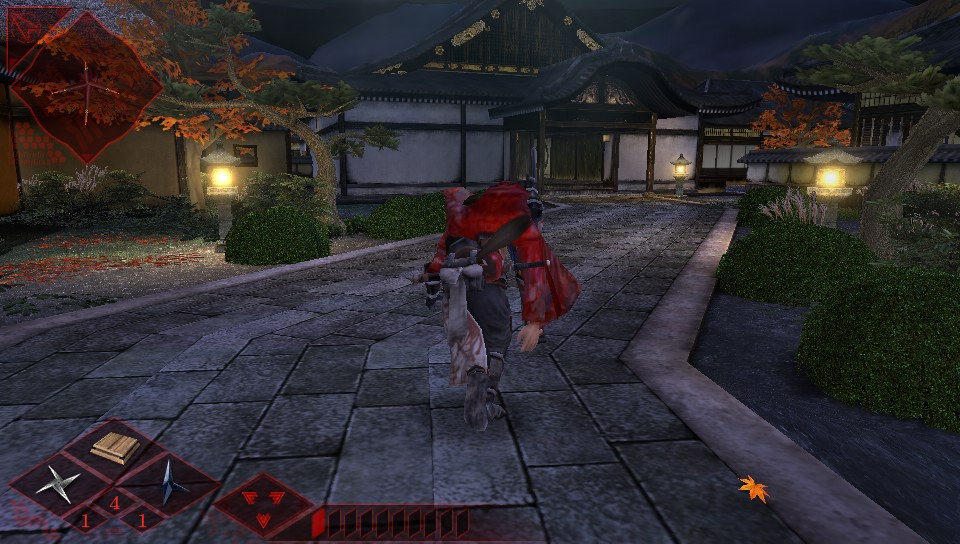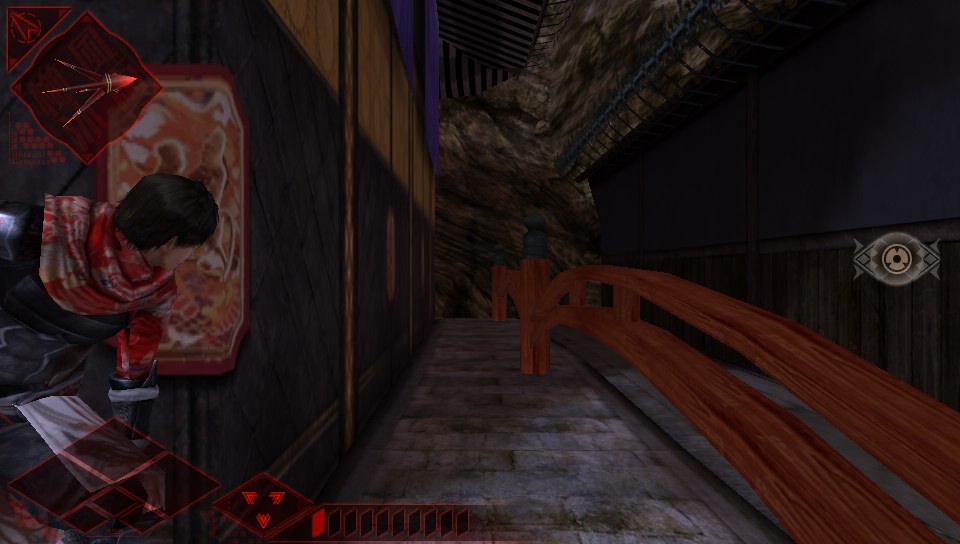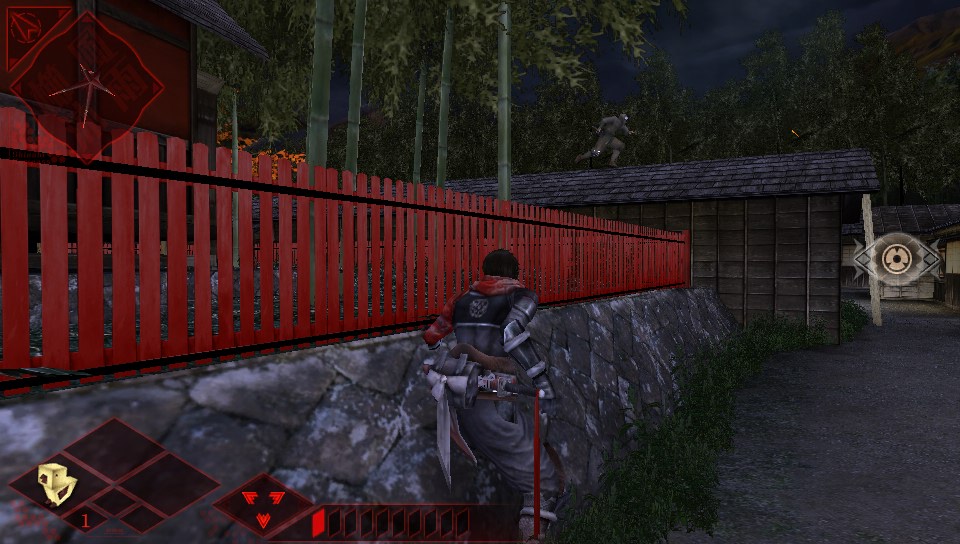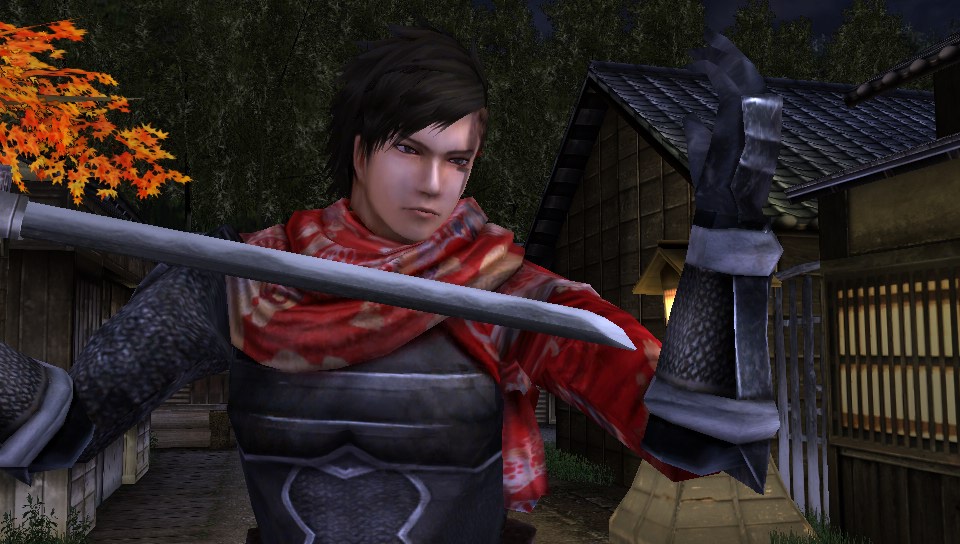Don't let this sneak under your radar.
The small pocket of hardcore Shinbido fans will want my head for saying this, but the simple fact is that there are a lot of people out there who won't be able to get past the initial stages of Shinbido 2: Revenge of Zen. They'll simply lack the patience required to get used to the camera and controls. Good as the game is, it lacks that extra polish to sway regular gamers to its side. In a title where careful movements can be the difference between life and death, even the slightest, occasional lack of precision can and will be magnified. Those who manage to get past that inital hump and learn the system, however, will be met by a great stealth game found only on the Vita.
Shinobido 2 is great as a portable, thanks to its mission structure. Players choose a mission from a list of possibilities, most of them being private contracts between Zen (as well as another playable character that comes along later) and a feudal lord. These usually take between two and ten minutes, and most often come with the goal of assassinating a special target or eliminating every enemy solider in a particular area. Other objectives may include kidnapping, prisoner rescue, protection, transport destruction, or delivery of a certain item, though these are less common than having Zen kill someone. That's what ninjas do.
The fun of Shinobido 2 lies in its stealth play. A certain nervous excitement grips you as you crouch down and creep up behind a nameless sucker, knowing you're about to end him. The Game Over screen awaits fools who can't stay hidden, as a startled opponent will often call for help. You can try to fight them off with brute force, hack-and-slash style, but this is not recommended. Killing multiple enemies at once in a gang fight is harder, more dangerous, and takes longer than it would if Zen remained hidden; it's clearly not preferred. The adrenaline rush that comes with both success and failure in your attempts to stay covert amid all the murder is at times on par with Metal Gear Solid and Tenchu.

Only a handful of stages are available, which the story justifies by setting the game in a remote corner of a small country, where three warlords struggle for control of the same turf. Small in number as the stages may be, they're all sufficiently detailed and never bring the game down. The environments are visually pleasing and, in tandem with the music, create an atmosphere that can really suck the player in. Sure, Shinobido 2 can't graphically rival Uncharted: Golden Abyss, but every stage still looks impressive. My claim might seem lofty to some who haven't played the game, but having cleared it, I can tell you that the static screenshots you see online don't do it justice. You gotta get it in on your Vita screen to see the true Shinobido.
Music enhances the gameplay stealthily as well. Generally calm, it stays in the background when Zen can't be seen. Once a guard gets a hint that something might be awry, however, the musical intensity picks up, matching the increased caution and concern of the player. When the jig is up, the music changes once again to a faster, more intense selection. Revenge of Zen is far from being the first game to utilize an aleatoric system (yep, that's the word for it), but it does a fantastic job of using dynamic music to enrich the players' experience.

One of the biggest complaints Shinobido 2 will draw from the masses will be about its awful AI. As was the case in its PSP predecessor (which never made it stateside), allies supposedly recruited to help you on escort missions will often do the total opposite. As they carelessly swing their swords at anything that moves, Zen's "allies" will cut each other down just as often as an enemy. While you frantically look around trying to locate a charging opponent and take the sucker out, you'll also be worried about getting literally stabbed in the back by a teammate. The number of times this happens in Shinobido 2 is ridiculous; it will lead to several unjustified Game Overs and make a lot of people angry.
Pitiful AI isn't limited to allies, though. Most enemies seem all too easy to fool and give up on their chases prematurely. Sometimes, getting out of danger can be as simple as running around a corner, leaving the once-embattled opponent standing still and scratching his head. This trend doesn't last all game and isn't always the case, but it happens more than enough for players to notice them.
After each mission, the character who completed the quest is given some experience points that work towards a level gain. Upon leveling up, the character in question gets a few stat points which you can spend however you want, in areas such as HP, power, defense, grappling hook length, and special attack bars. The system is simple and addictive. If you get easily wrapped up in other mission-based games or RPGs, take heed: This game can mess with your head. It can convince you to delay important real-life things by constantly pursuing the next level up or clearing a few more quests.

Ninja tools add variety to the number of ways you can go about reaching a stage's objectives.Shinobido 2 includes a deep alchemy system that allows you to take purchased materials as well as gathered miscellanea, stick them in a pot together, and make some devastating items.
The ability to use said items is enhanced by the constantly changing story. When the player finishes one quest under the service of one warlord, the impact on other clans will be seen not just on a stats board, but in the next mission. Disrupting a shipment of goods to one faction might make that group's soldiers weaker, fewer in number, or hungrier, where they'll be more susceptible to trap items such as poisoned food. Watching this all play out from start to finish is rewarding to say the least.
Gamers who can take the time to learn how to work with Shinobido 2's controls and camera will be met with a deep, satisfying stealth adventure. With depth to spare, a passable story, a very intriguing faction system, and all the stealth fun you could ask for, this might be one of the Vita's most underrated titles right out of the gate. If you're the type of gamer who only plays games with gigantic hype and multimillion-dollar budgets, Revenge of Zen might not be your thing, but those who do get into this title are in for a worthwhile experience.
-
Sneaking and killing are well done
-
Terrible AI on both allies and enemies
-
Great atmosphere
-
Faction system makes no two adventures the same
-
Endless amount of missions for those that want them
-
Camera is troublesome at times.
-
Controls have a sharp learning curve







